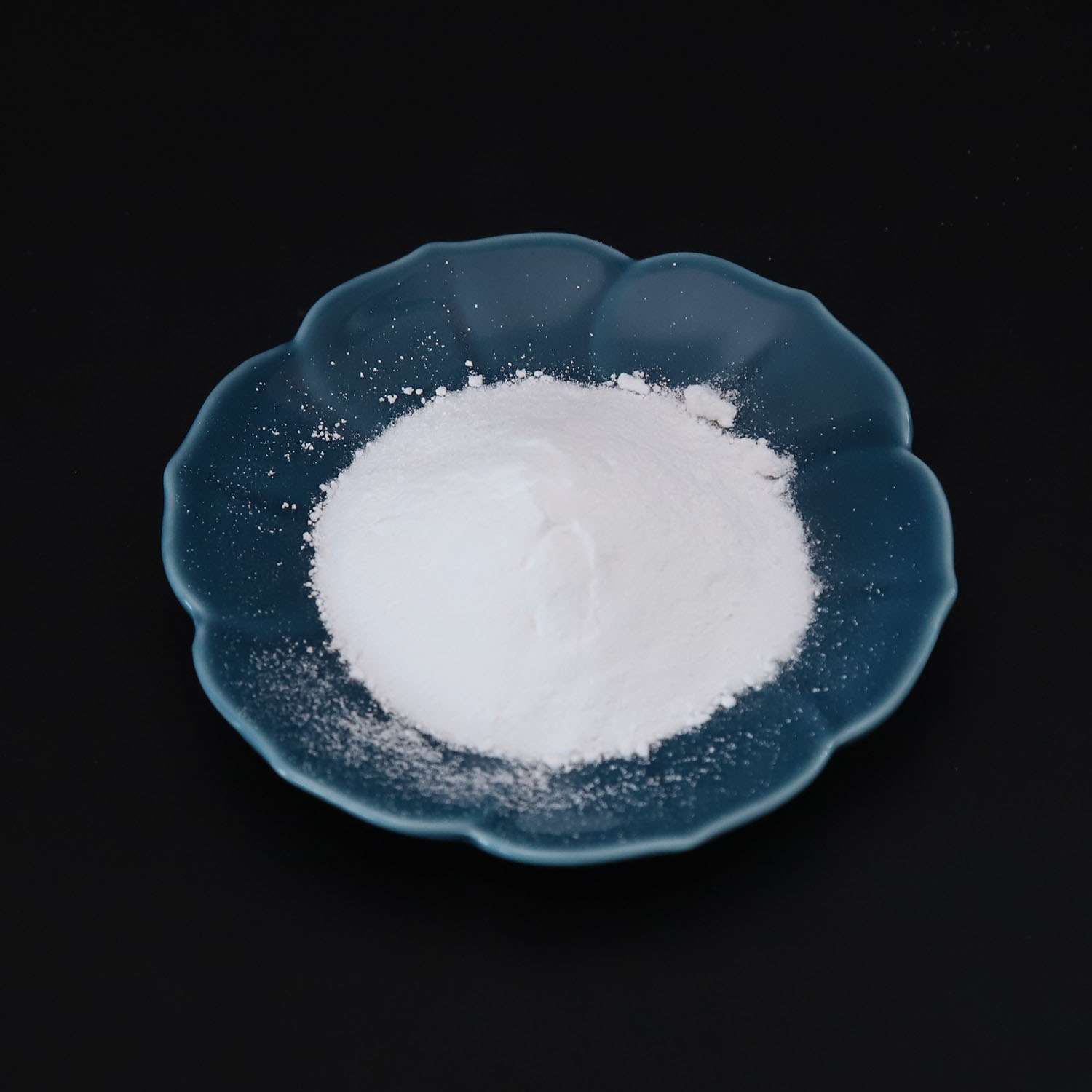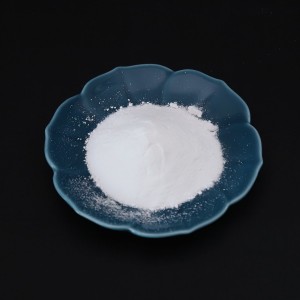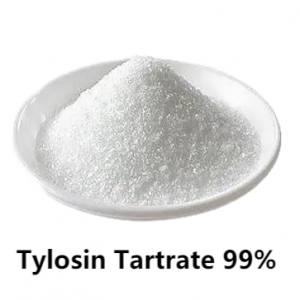Tylosin Tartrate CAS 74610-55-2 It Has a Specific Effect on Mycoplasma
| Product | Tylosin Tartrate |
| Peculiarity | It has strong inhibitory effect on mycoplasma, but poor effect on most gram-negative bacteria |
| Application | Clinically, it is often used to treat drug use. |
Our Advantages
1.We have a professional and efficient team that can meet your various needs.
2.Have rich knowledge and sales experience in chemical products, and have in-depth research on the use of products and how to maximize their effects.
3.The system is sound, from supply to production, packaging, quality inspection, after-sales, and from quality to service to ensure customer satisfaction.
4.Price advantage. On the premise of ensuring quality, we will give you the best price to help maximize customers’ interests.
5.Transportation advantages, air, sea, land, express, all have dedicated agents to take care of it. No matter what transportation method you want to take, we can do i
| Advantage | 1. It is a special antibiotic for livestock and poultry, and will not bring cross-resistance problems to humans. 2. The addition dose is small, can be added in the feed for a long time at a low dose, and the growth promotion effect is significantly better than most other antibiotics. 3. Added in the feed by oral absorption is fast, generally 2-3 hours can reach the highest blood concentration; It is widely distributed in tissues, maintains effective bacteriostatic concentration for a long time, and is completely excreted. 4. It is the first choice drug for mycoplasma disease in livestock and poultry. 5. Wide antibacterial spectrum, in addition to mycoplasma has special effect, staphylococcus, streptococcus, corynebacterium, mycobacterium, Pasteurella, spirochete, etc., it also has a strong effect on coccidiosis. 5. Tylomycin phosphate has stable molecular structure, high biological activity and availability, and is a new star of antibiotic additives in the feed industry. |
| Antibacterial spectrum | 1. Mycoplasma-resistant microorganisms Against mycoplasma suis pneumoniae, Mycoplasma gallinum, Mycoplasma bovine, Mycoplasma goat, Mycoplasma bovine reproductive tract, Mycoplasma agalactia, Mycoplasma arthritis, mycoplasma poris nose, mycoplasma poris synovial sac and mycoplasma synovial sac, etc. 2. Anti-gram-positive bacteria Anti-staphylococcus, Streptococcus, corynebacterium, swine erysipelas, Clostridium and other Gram-positive bacteria. 3. Anti-gram-negative bacteria Gram-negative bacteria such as antipasteurella, Salmonella, Escherichia Coli, Shigella, Klebsiella, Meningococci, Moraxella bovis, Bordetella bronchoseptica, Mycobacterium, Brucella, Haemophilus paracarinae, etc 4. Campylobacter Anti-campylobacter foetus, formerly known as Vibrio foetus, that is, campylobacter coli, formerly known as Vibrio coli 5. Anti-spirochaeta Spirochaeta serpentinus, Spirochaeta gooseniae and other spirochaeta antidysentery. 6. Anti-fungal Anticandida, Trichophyton and other fungi. 7. Coccidium-resistant Anti-eimeria sphaera. |
| Clinical application | 1. Mycoplasma disease The specific effect on mycoplasma is a remarkable feature of tylomycin, which has become the first choice for the prevention and treatment of mycoplasma diseases in livestock and poultry. It is mainly used for the prevention and treatment of mycoplasma pneumonia of pig (also known as swine epidemic pneumonia, commonly known as swine asthma disease), mycoplasma gallinarum infection (also known as chronic respiratory disease of chicken), infectious pleuropneumonia of sheep (also known as mycoplasma pneumonia of sheep), mycoplasma mastitis and arthritis of cattle, mycoplasma agalactia and arthritis of sheep, mycoplasma serositis of pig, arthritis, and so on. Avian mycoplasma synovitis and so on. 2. Bacterial diseases Tylosin has a good effect on a variety of diseases caused by gram-positive bacteria, and also has a good effect on some diseases caused by gram-negative bacteria. It is mainly used for prevention and treatment in veterinary clinic: (1) Various suppurative diseases caused by Staphylococcus aureus, such as acute and chronic mastitis in cattle and sheep, dermatitis in sheep and septicemia in lambs, dermatitis and abortion in pigs, traumatic infections, abscesses, cellulitis in horses, gangrenous dermatitis, septicemia, inflammation and arthritis in chickens. (2) Streptococcus caused by bovine and sheep mastitis, swine septicemia, arthritis, piglet meningitis, equine adenopathy, traumatic infection and cervicitis. (3) suppurative caseous lymphadenitis (pseudotuberculosis) of sheep caused by corynebacterium, ulcerative lymphangitis and subcutaneous abscess of horse, nephromonnephronephritis and mastitis of cattle, urinary system infection of pig, clostridium enteritis of pig caused by C type Clostridium Wei. (4) Swine erysipelas caused by Bacillus erysipelas suis. (5) Pasteurella causes swine pulmonary disease, bovine hemorrhagic septicemia, avian cholera, and pasteurellosis of sheep, horses, and rabbits. (6) Salmonellosis of various livestock and poultry caused by salmonella. (7) Colibacillosis of various livestock and poultry caused by pathogenic Escherichia coli. (8) Porcine chronic atrophic rhinitis caused by Bordetella bronchoseptica. (9) Tuberculosis of cattle, pigs and chickens caused by mycobacterium. (10) Abortion and infertility in cattle, sheep and pigs caused by Brucella. (11) Abortion and infertility in cattle and sheep caused by Campylobacter foetus (formerly Vibrio foetus). (12) Colitis caused by Campylobacter coli (formerly called Vibrio coli) in pigs and chickens. 3. Spirochaeta diseases Swine dysentery caused by serpentine spirochaeta, avian spirochaeta caused by goose. 4. Anti-coccidia Adding tylosin to feed can prevent and control Eimercoccidiosis of chicken. |
| Bacterin characteristics | 1. Significant anti-mycoplasma (Mycoplasma mycoplasma) effect It has a strong inhibitory effect on mycoplasma pleuropneumoniae and a variety of other mycoplasma, and is the first choice for mycoplasma infectious diseases in livestock and poultry. 2. Wide antibacterial spectrum It mainly has a strong inhibitory effect on a variety of Gram-positive (G+) bacteria, but also has an inhibitory effect on some Gram-negative (G-) bacteria, campylobacter (formerly belonging to Vibrio), spirochaetes, and anti-coccidiosis. 3. Rapid absorption and excretion Whether orally or by injection, the effective bacteriostatic concentration can be reached in a very short time (several 10 minutes) and maintained for a certain time, and the drug is quickly discharged after withdrawal, and there is almost no residue in the tissue. 4. Good diffusion ability It can penetrate into all organs, tissues and body fluids, especially through the plasma membrane, blood-brain, blood-eye and blood-testis barriers, which makes tylosin a wide range of clinical applications. 5. Significant growth promoting effect Continuous low-dose feeding of tylosin to growing livestock and poultry can not only prevent diseases, but also significantly promote animal growth, shorten growth cycle and increase feed reward. 6. Specificity of use Tylosin is a special antibiotic for livestock and poultry, which avoids the cross-resistance problem that is easy to occur when humans and animals share antibiotics. |
Write your message here and send it to us









